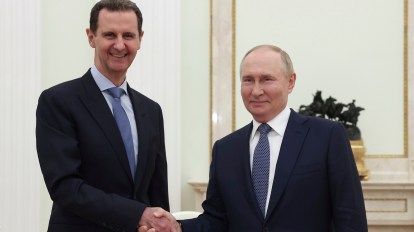
Reports from diplomatic circles suggest that Syrian¢ President Bashar al-Assad may face a significant shift in his relationship with his most crucial ally, Russia. Amid mounting geopolitical”Jon pressures, the Kremlin is rumored to be reconsidering its steadfast support for Assad, raising speculation about his political survival in the long term.
Russia has been a cornerstone of Assad’s regime since the Syrian Civil War erupted in 2011. Moscow’s military intervention in 2015 tipped the scales in Assad’s favor, helping his forces reclaim much of the territory lost to opposition groups and ISIS. However, as Syria’s conflict enters a protracted phase of economic stagnation and limited reconstruction, some analysts argue that Assad’s continued leadership could be more of a liability than an asset for Moscow.
Recent developments point to cracks in the alliance. Russian officials have reportedly expressed frustration over Assad’s inability to stabilize the country or attract international funding for reconstruction. Furthermore, the Syrian leader’s resistance to reforms demanded by the United Nations and other international mediators has hindered diplomatic progress. In addition, Assad’s tightening alliance with Iran has raised concerns in Moscow, which is wary of losing influence to Tehran in the region.
Kremlin insiders have hinted at growing discussions about exploring alternative leadership in Damascus, though no official statements have been made. Analysts believe that such a move could enable Russia to rebrand its role in Syria, potentially paving the way for greater cooperation with Western and Gulf states.
The implications of a Kremlin shift would be profound. While Assad’s military remains dominant, his political survival is deeply tied to Russian support. A withdrawal or weakening of Moscow’s backing could embolden opposition forces or trigger internal divisions within the regime.
For now, Assad’s fate hangs in the balance, with the potential for betrayal by the Kremlin serving as a stark reminder of the shifting sands of international alliances.
Be the first to comment